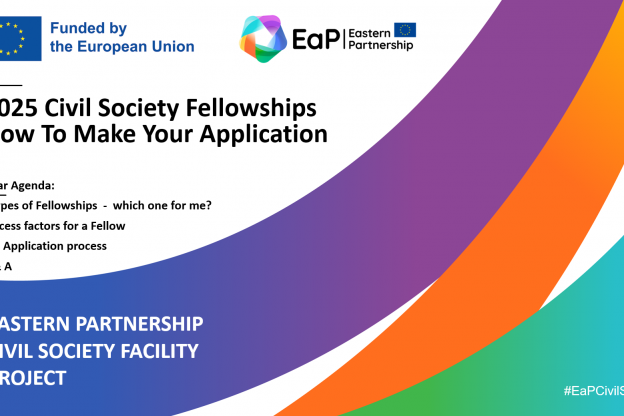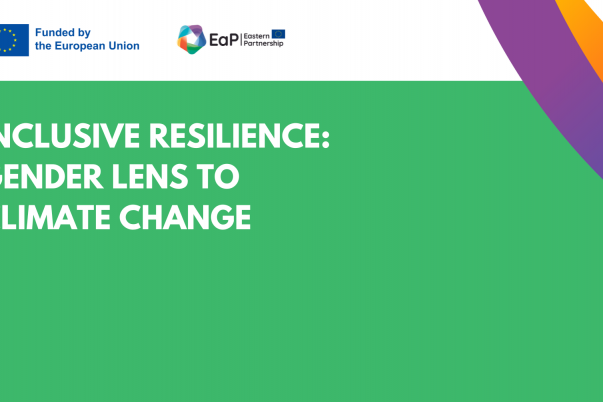Inclusion comprehends people’s involvement and empowerment. When people are included, their worth is recognized and respected. It increases innovation and creativity. Yet in many aspects of community life, we fail to facilitate inclusivity. In Ukraine and in Georgia EaP Civil Society Fellows have been documenting and promoting practices that support more inclusivity in cultural institutions, artistic events, and youth-oriented activities. These inclusive practices hold valuable lessons for all those committed to ensuring diversity and equality in our communities.
Download the Guide to Inclusive Art Practices in Ukraine by Volodymyr Vysotskyi (in English and Ukrainian).
The webinar was led by Volodymyr Vysotskyi and Ketevan Tvildiani, our EaP Civil Society Fellows from Ukraine and Georgia.
Volodomyr Vysotskyi
Volodymyr Vysotskyi is a Certifed Professional in Accessible Built Environments, professional member of the International Association of Accessibility Professionals (IAAP), expert at INKultur international program, and co-founder of ORFO universal design studio. Volodymyr is engaged in various projects focusing on barrier-free development, accessibility promotion, and design of inclusive urban environments supported by various donors. Since 2019, Volodymyr has been advocating for inclusive transformations in the cultural and art sphere, managing initiatives to promote accessibility of cultural institutions and development of inclusive art practices.
Ketevan Tvildiani
Ketevan Tvildiani is a project mentor at the civil society organization ‘Development and Engagement Platform’, with a background in promoting inclusivity and raising awareness of socio-political involvement among vulnerable groups. Prior to her current role, she worked with the British Council in Georgia, collaborating with local and international cultural and non-governmental organizations as well as youth with disabilities through the British Council’s program “Unlimited: Making the Right Moves”.




Comment